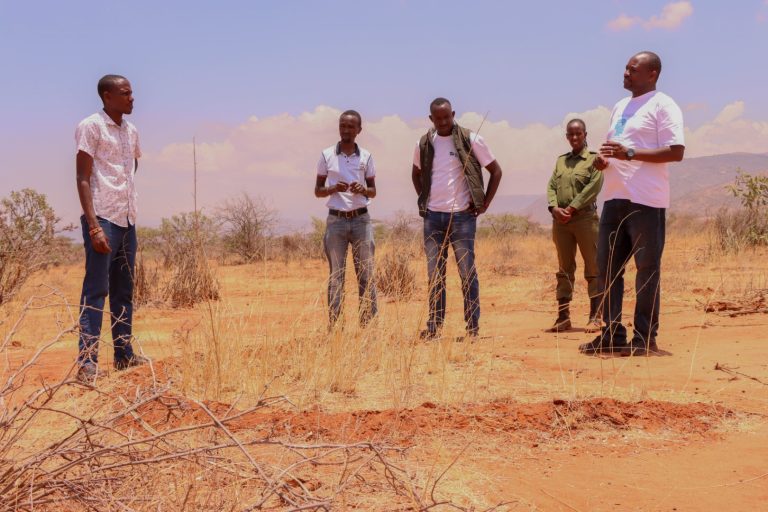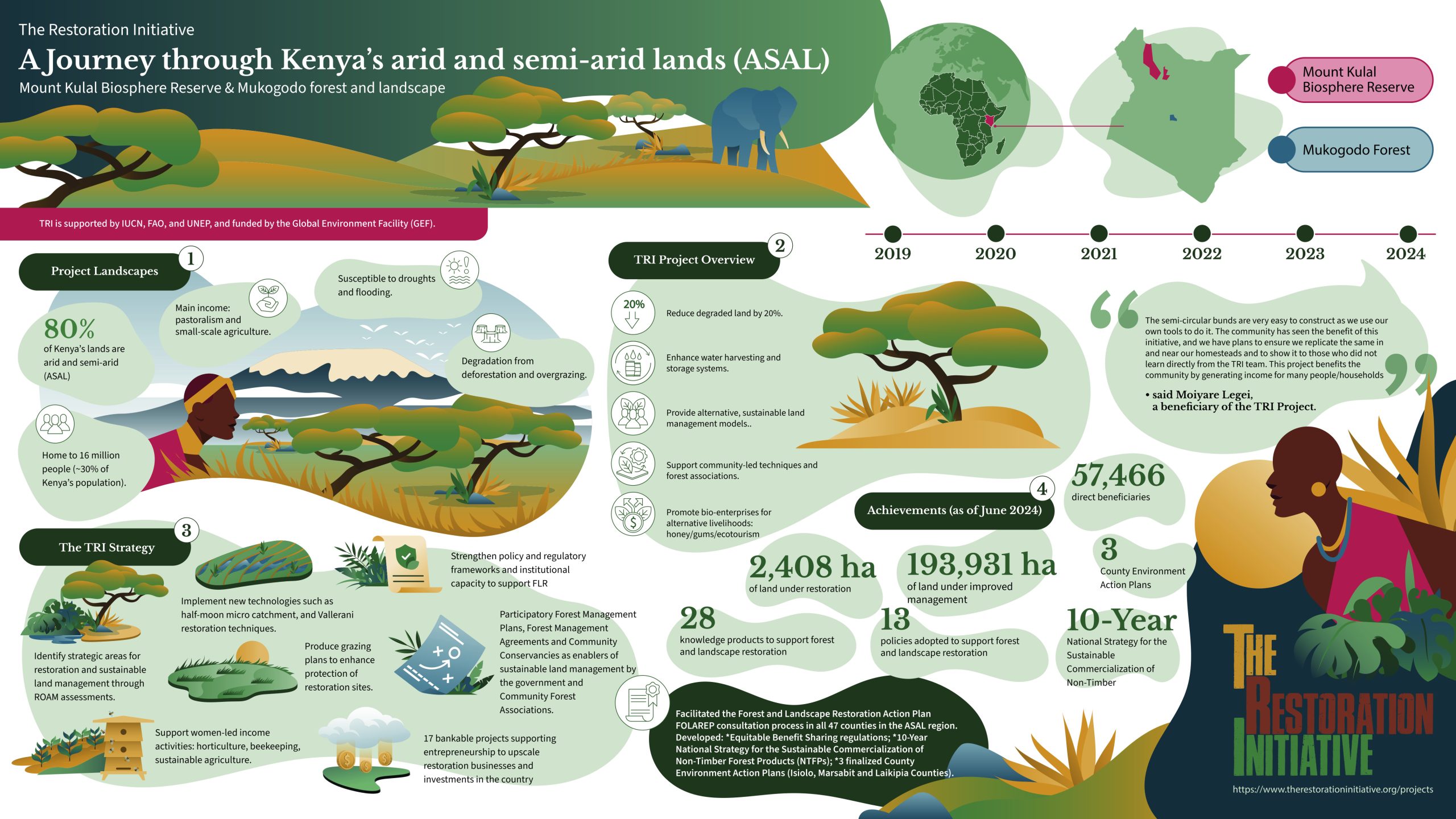
Kenya (ASAL)
Project Information
TRI’s project in Kenya’s arid and semi-arid lands (ASALs) focuses on combating land degradation and desertification, which threaten both the environment and the livelihoods of local communities. The project targets key landscapes, including the Mount Kulal Biosphere Reserve and the Mukogodo Forest, where unsustainable land use practices have led to significant degradation. Through participatory approaches, the project promotes sustainable land management techniques, such as improved pasture management and agroforestry, to restore degraded lands and enhance the resilience of local ecosystems. The project also supports the development of non-timber forest products (NTFPs), such as honey and gum resins, which provide alternative income sources for communities while reducing pressure on natural forests. By integrating traditional knowledge with modern conservation practices, the project aims to create sustainable livelihoods that are in harmony with the environment. Additionally, the project includes a strong emphasis on capacity-building, working with local communities and institutions to ensure that sustainable land management practices are adopted and maintained over the long term.

News & Stories

